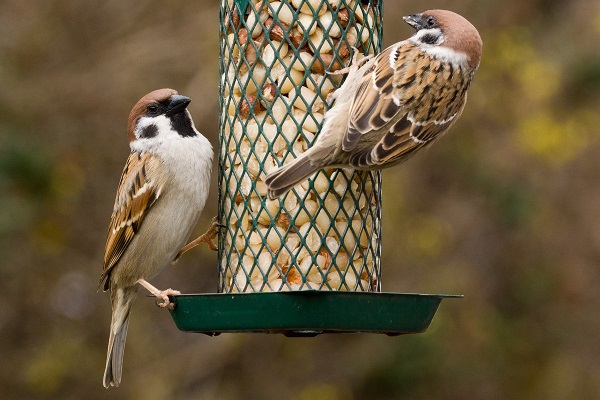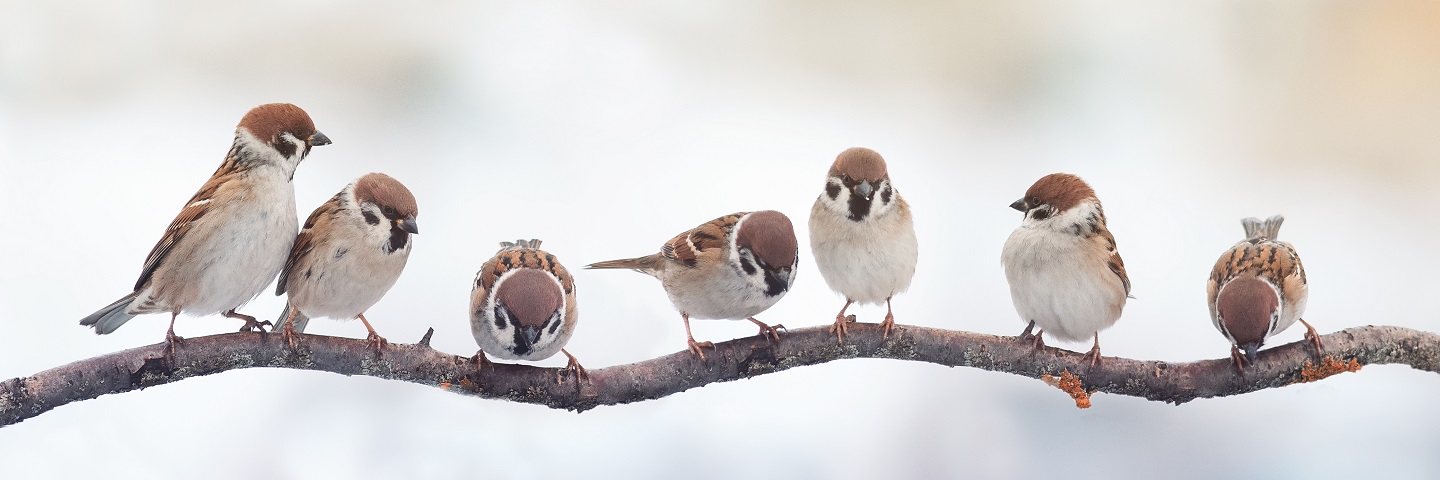Collaborative ZSL/BTO study stresses ongoing importance of feeding while investigating evolving threats to wild birds.
Wild birds are at risk of a number of serious diseases at our garden bird feeders, according to a collaborative study led by scientists from international conservation charity ZSL (Zoological Society of London) and published in the journal Philosophical Transactions of the Royal Society B.
The research, conducted in partnership with the British Trust for Ornithology (BTO) and Fera Science Ltd, analysed more than 25 years’ worth of data on the occurrence of wild bird diseases, contributed by members of the public participating in national ‘citizen science’ projects, highlighting the ongoing importance of these surveys in helping scientists track the evolving health threats facing garden wildlife.
Focusing on protozoal (finch trichomonosis), viral (Paridae pox) and bacterial (passerine salmonellosis) diseases, the study found that while there are multiple benefits of additional food resources for wild birds, particularly during the harsher winter months, garden feeding can also promote the transmission of some diseases – not least by encouraging birds to repeatedly congregate in the same location, often bringing them into regular contact with other species they wouldn’t otherwise interact with so closely in the wider environment. Risks can be increased if hygiene at feeding stations is poor, allowing stale food, food waste and droppings to accumulate.
Commenting on the study, lead author Dr Becki Lawson from ZSL’s Institute of Zoology said: “Our study shows how three of the most common diseases that affect British garden birds have changed both dramatically and unpredictably over the past decade, both in terms of the species they affect and their patterns of occurrence.“Both finch trichomonosis and Paridae pox have emerged recently, causing disease epidemics affecting large numbers of birds, while passerine salmonellosis – previously a common condition – appears to have reduced to a very low level. These conditions have different means of transmission – so deepening our understanding of disease dynamics will help us develop best practice advice to ensure that feeding garden birds also helps to safeguard their health”.
The study makes a number of evidence-based recommendations to maximise the benefits but minimise the potential risks associated with feeding wild birds. When disease outbreaks do occur, people are encouraged to report their observations (e.g. lethargy or unusually fluffed-up plumage); seek veterinary guidance; and consider a temporary halt to garden feeding in order to encourage birds to disperse, reducing the risk of further disease spread.

Fera's lead expert on Mycotoxins Susan McDonald, also co-author of the paper who collaborated on the 'Health hazards to wild birds and risk factors associated with
anthropogenic food provisioning' part of the PhD thesis, the full report is available, details below, comments 'A follow up study is currently been done to determine aflatoxin and ochratoxin A in bird feed peanuts, nut kibbles and sunflower seeds. In this follow up study we will repeat the analysis that was done ca 10 years ago to determine if the current market has improved, and then prepare a stand alone publication that includes all the mycotoxin data'.
Commenting further, co-author Kate Risely from BTO said: “We’re calling on everyone who feeds wild birds to be aware of their responsibilities for preventing disease. Simple steps we’d recommend include offering a variety of food from accredited sources; feeding in moderation, so that feeders are typically emptied every 1-2 days; the regular cleaning of bird feeders; and rotation of feeding sites to avoid accumulation of waste food or bird droppings.
Anyone can join the battle against wildlife disease by contributing vital data to the nationwide Garden Wildlife Health (GWH) project, a collaboration between ZSL, BTO, Froglife and the Royal Society for the Protection of Birds (RSPB). Find out more, including further best-practice advice for minimising disease risks, via this link:
The full paper is available by the Royal Society and covers the diverse approaches to studying interactions between resource availability and pathogen ecology in wildlife across multiple scales of biological organisation, ranging from infection dynamics within individual hosts to landscape-level spread for highly mobile species, further details available via this link:




